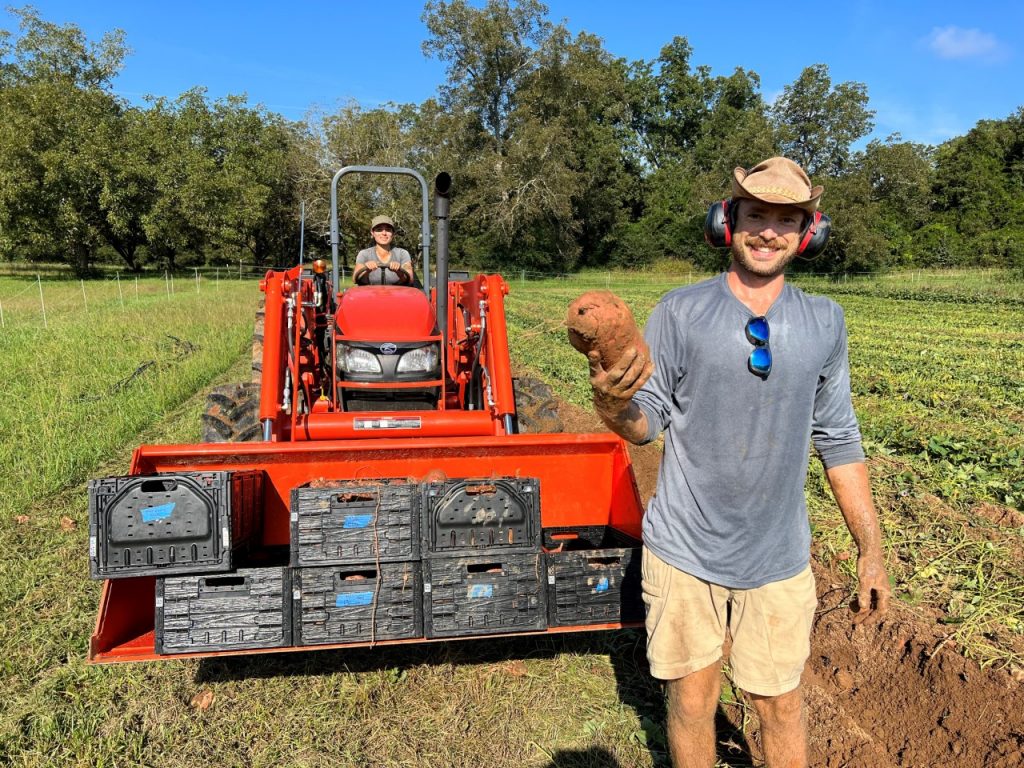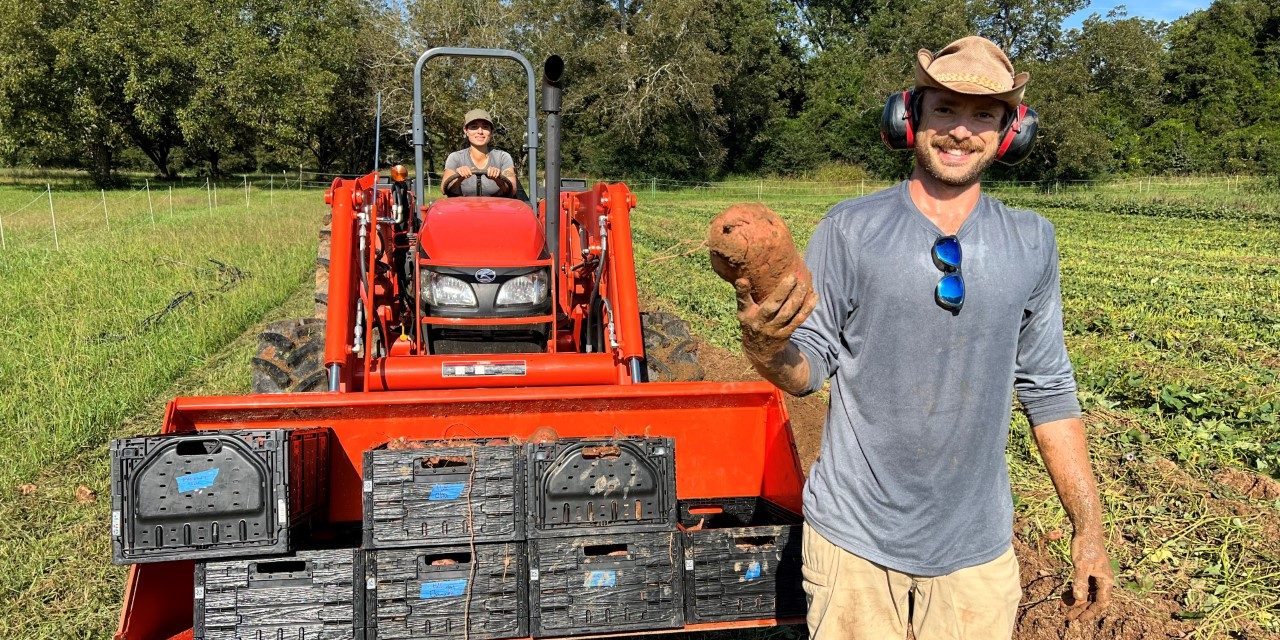Emory dining received its first shipment of sweet potatoes through the University’s new partnership with the Conservation Fund on Nov. 18.
The Conservation Fund, a national nonprofit pursuing environmental protection and economic sustainability, buys land on behalf of local, minority farmers who will lease the land and in turn sell their food to various places, including the University. According to Associate Vice President of Resilience, Sustainability and Economic Inclusion Ciannat Howett, the partnership will increase the amount of locally sourced food in Emory dining halls while conserving Atlanta-area farmland and supporting Georgia farmers.
The potato shipment came from the Love is Love Cooperative Farm, an organic farm based in Mansfield, Georgia.
According to the farm’s partner, Judith Winfrey, the partnership, and the markets it brings, will be an important step in the farm’s goal of expanding production. Love is Love Cooperative Farm is growing on two acres and hopes to expand to 10 within the coming years.

A sweet potato is harvested at Love is Love Cooperative Farm. The sweet potatoes will cure for about two weeks, and then can be served in Emory’s dining halls. Photo courtesy of Emory University
“Working with an institution like Emory is a wonderful opportunity for us to sell lots of food through the cafeterias and catering,” Winfrey said. “But we’re also a mission-driven business, and part of our mission is health. It’s equally exciting to think about the potential to impact the lives and the brains of students by helping to get nutritious food to them.”
This partnership was made possible by the Working Farms Fund, the Conservation Fund’s new pilot program in Georgia, designed to help build the next generation of farmers. Working Farms Fund Associate Kristian Varza said young Georgia farmers face a number of challenges in acquiring land because they did not grow up with farmland and lack the financial leverage to purchase land of their own.
To resolve this issue, the Conservation Fund has bought land on behalf of these farmers through the Working Farms Fund, and the farmers lease the land from them. This allows the farmers to build infrastructure, grow food and find new markets.
The Conservation Fund eventually puts a conservation easement on the land, meaning it will stay farmland, helping to stop Atlanta’s urban sprawl and benefiting future farmers.
“We’re scaling up our local farms to meet the demand of our local communities,” Varza said. “That means both rural as well as urban communities that need access to fresh, healthy local food that’s been grown in a sustainable manner.”
The program also aims to support farmers of color. As of 2017, only 4% of Georgia’s farmers were Black, and the program hopes to increase these numbers by helping farmers of color overcome barriers.
“This is a huge opportunity for some Black farmers to grow their lands or access land for the first time for their generation, and we’re so excited to support it,” Varza said.
Howett proposed partnering with the Conservation Fund after listening to a presentation about the program’s efforts.
She saw the partnership as a way to reach the University’s 2025 goal of 75% local or sustainable food purchasing. Since 2005, Emory has averaged at 40% local or sustainable food purchasing.
“When we set that goal, we knew it was a moonshot,” Howett said. “Part of the reason we set such a bold goal was because we wanted to change the existing paradigm where food travels for miles to get to your plate.”
Since setting that goal in 2005, the University has been on a 15-year journey of making major systemic changes, from spreading the word about the initiative to farmers, to redesigning kitchens to be able to handle whole foods, to partnering with local Georgia nonprofits.
In addition to increasing the locally-sourced student dining options, this partnership will also provide opportunities for Emory students to get involved with the farms. Students and faculty will have opportunities to do research on the farm, according to Howett.
“This is innovation happening,” Howett said. “Innovation in laboratories is not the only type that happens at Emory, and this innovation in how we get our food speaks to the strength of Emory as a liberal arts institution.”
Oxford Campus Desk | Katie Bartlett (she/her, 23Ox) is from New Jersey, majoring in history. Outside of the Wheel, she is a project coordinator for Volunteer Oxford, a high school tutor and an avid hiker and animal lover. In her free time, Bartlett can be found on the Oxford nature trail or playing with the campus cats.




